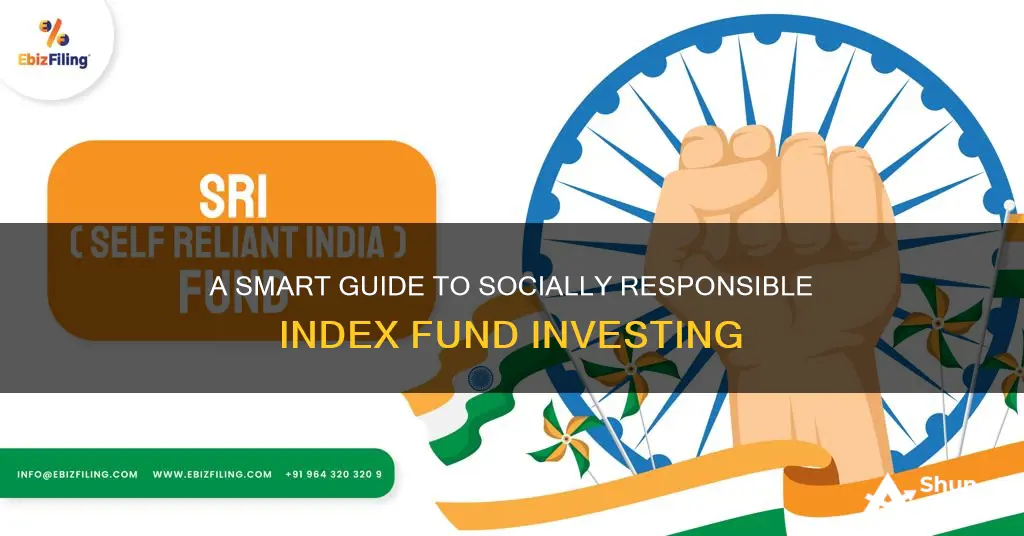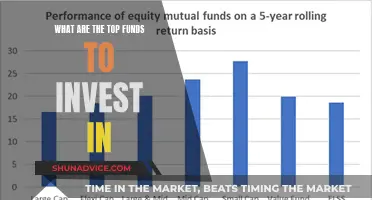
Socially responsible investing (SRI) is an investment strategy that aims to generate both positive social change and financial returns. SRI investors pay attention to corporate governance, environmental impact, and human rights, among other factors. While it was once considered a fairly radical strategy, SRI has gained popularity in recent years, with more investors demanding socially responsible options.
SRI can be done by investing in individual stocks or through mutual funds or exchange-traded funds (ETFs). When choosing investments, SRI investors consider whether a company's revenue sources and business practices align with their values. This means that no two SRI portfolios will look the same, as everyone has different values and priorities.
Some common considerations for SRI investors include:
- Environmental concerns, such as investing in clean energy companies or excluding fossil fuel companies
- Social issues, such as gender equity initiatives or indigenous people's rights
- Governance issues, such as corporate ethics and diversity in the workplace
While SRI funds were once associated with higher fees, this is no longer always the case, and there are now many affordable options available. Additionally, evidence suggests that SRI funds can perform just as well, if not better, than traditional funds, and may even be less volatile.
So, if you want to invest in a way that aligns with your values and makes a positive impact on the world, SRI is definitely worth considering.
| Characteristics | Values |
|---|---|
| Definition | An investing strategy that aims to generate both social change and financial returns for an investor |
| Alternative names | Values-based investing, sustainable investing, ethical investing, sustainable, responsible and impact investing |
| Focus areas | Environmental, social and governance factors |
| Performance | Can match traditional funds and sometimes outperform them |
| Volatility | May be less volatile than traditional funds |
| Cost | Can be more expensive than traditional funds due to additional ethical research |
| Investment options | Clean energy companies, companies with gender equity initiatives, companies that don't use prison labour |
| Robo-advisors with SRI portfolios | Betterment, Wealthfront, Merrill Edge Guided Investing |
What You'll Learn

Pick an area of social responsibility that you want to boost via your investments
The first step to investing in socially responsible index funds is to pick an area of social responsibility that you want to boost with your investments. The two most common causes with the most socially responsible index funds available are fossil fuel-free funds and gender equity funds. However, there are many other options to choose from, including:
- Clean energy companies
- Companies with gender equity initiatives
- Companies that don't use prison labour to produce their products
- Companies with strong corporate governance and ethical practices
- Companies with strong environmental practices
- Companies with safe products that don't negatively impact people or the planet
- Companies that respect the rights of Indigenous people
Once you have picked an area of social responsibility that you want to boost, you can start researching specific socially responsible index funds that align with your values and financial goals.
Hedge Funds: Where Are They Placing Their Bets?
You may want to see also

Review your current investments
Reviewing your current investments is a crucial step in transitioning to socially responsible investing. Here's a detailed guide to help you through the process:
Identify Your Current Investments:
Start by making a comprehensive list of all your current investments. This includes stocks, bonds, mutual funds, exchange-traded funds (ETFs), and any other investment vehicles you hold. You can find this information by reviewing your investment portfolio or brokerage account statements.
Analyze Your Investments Through an SRI Lens:
Once you have your list, it's time to evaluate each investment through the lens of socially responsible investing (SRI). Ask yourself the following questions:
- Does this investment align with my values and ethical beliefs?
- Are there any industries or sectors that I want to exclude, such as fossil fuels, gambling, or weapons?
- Are there specific social or environmental causes I want to support, such as clean energy or gender equity?
- Are there companies within my investments that contradict my values or have a negative impact?
Prioritize Your Values and Goals:
Everyone has different values and priorities when it comes to SRI. Some investors may focus on environmental concerns, while others prioritize social issues like diversity and human rights. Decide which issues are non-negotiable for you and which areas you're willing to be more flexible. This will help guide your investment decisions.
Conduct In-Depth Research:
Now, it's time to dive deeper into your investments. Look beyond the financial performance and analyze each investment's social and environmental impact. Review independent research and ratings from organizations like Morningstar, or refer to SRI-specific resources and fund screeners offered by platforms like Merrill Edge and Fidelity.
Assess the Financial and Social Impact:
As you review your investments, consider both the financial and social impact. Ask yourself:
- Are my investments performing well financially, and do they align with my financial goals?
- Are my investments making a positive impact in the areas I care about?
- Are there any investments that contradict my values or fall short of my expectations for social responsibility?
Make Informed Decisions:
Based on your research and analysis, decide which investments to keep, adjust, or divest. Remember, the goal is to align your investments with your values and priorities. If you find investments that don't meet your SRI criteria, consider replacing them with more socially responsible alternatives.
Reviewing your current investments is a crucial step toward creating a portfolio that reflects your values. It ensures that your investment decisions are informed, intentional, and aligned with your financial and social goals. Remember to refer to reliable resources and seek expert advice when needed to make well-informed decisions.
JPMorgan Growth Advantage Fund Class R6: Smart Investment Move?
You may want to see also

Understand the difference between active and passive funds
Passive investing is a long-term strategy that involves buying and holding investments with minimal portfolio turnover. Passive investors tend to invest in index funds or mutual funds, which are designed to mirror the performance of a specific index, such as the S&P 500 or Dow Jones Industrial Average. Passive investors limit the amount of buying and selling within their portfolios, making this a cost-effective strategy. Passive funds have ultra-low fees, good transparency, and are tax-efficient. However, they are limited to a specific index, may result in small returns, and investors have less control over their investments.
On the other hand, active investing is a short-term strategy that involves buying and selling investments based on their performance. Active investors take a hands-on approach and aim to beat the average market returns. Active investors analyse investments for price changes and returns, and they have the flexibility to hedge their bets and manage risks. However, active investing is very expensive, and there is a risk of making costly mistakes.
Both strategies have their advantages and disadvantages, and many professionals blend the two to take advantage of the strengths of each. Passive investing is generally more prevalent among retail investors, while active investing has a prominent place in the market, especially during market upheavals.
A Guide to Investing in Mutual Funds
You may want to see also

Decide where you want to have an impact
Deciding where you want to have an impact is a crucial step in socially responsible investing. Here are some key considerations to help you determine your focus areas:
Environmental Impact
If you're passionate about the environment and want to mitigate climate change, you can direct your investments towards companies that promote sustainable and clean energy solutions. This includes businesses focused on renewable energy sources, such as solar, wind, and decarbonization technologies. You may also want to consider excluding investments in fossil fuel companies and other industries that contribute significantly to environmental damage, like gambling, tobacco, and weapons.
Social Impact
Your social values play a significant role in shaping your investment choices. You might prioritize supporting companies that demonstrate a strong commitment to gender equity and women in leadership positions. Additionally, you can seek out businesses that promote diversity, equity, and inclusion in their workforce and have strong records on LGBTQ+ equality and racial diversity. It's also essential to consider companies' labour practices, ensuring they provide fair compensation and safe working environments for their employees.
Governance and Ethics
When assessing potential investments, pay attention to corporate governance and ethical business practices. This includes evaluating companies' executive compensation structures, board diversity, and their interactions with shareholders. You can also assess their commitment to transparency and how they address concerns related to human rights, anti-corruption, and environmental standards.
Community Impact
Some socially responsible mutual funds offer community investment opportunities. These investments provide returns while supporting community development, affordable housing, or venture capital initiatives, particularly in lower-income areas or developing countries. This approach allows you to make a positive impact at a local level while still generating financial returns.
Personal Values
Ultimately, socially responsible investing is deeply personal, and you should identify the values that matter most to you. Whether it's environmental sustainability, social justice, ethical business practices, or a combination of these, defining your values will guide your investment decisions. You can then screen potential investments to ensure they align with your principles and exclude those that don't meet your standards.
Remember, socially responsible investing doesn't have to be mutually exclusive with financial returns. By carefully selecting investments that align with your impact goals, you can make a positive difference while also growing your investment portfolio.
Index Funds: The Smartest Investment Choice for Your Money
You may want to see also

Know your values
Knowing your values is the first step in socially responsible investing. This strategy allows you to invest while also creating positive change and is also known as values-based, sustainable, or ethical investing.
Since everyone has different values, it is important to define what matters to you. For example, if you are passionate about the environment, you might invest in green energy sources such as wind and solar companies. If you care about supporting the advancement of marginalized groups, you might invest in women-run companies or buy stock in Black-owned businesses.
You can also choose to divest from companies that do not align with your values. For instance, you might choose to divest from a company that mistreats LGBTQ+ employees or has a poor environmental track record.
Some common values-based considerations for socially responsible investing include:
- Workplace practices
- Company values
- Employee diversity
- Environmental concerns
- Community support
- Governance issues
- Religious values
- Human rights practices
It is important to note that not all socially responsible investment funds will align perfectly with your values. For example, a fund may exclude fossil fuel companies but still include companies like Amazon and Facebook, which some investors choose to avoid.
Once you have a clear understanding of your values and priorities, you can start building a portfolio that supports what matters to you.
Factor Funds: Where to Invest Now?
You may want to see also
Frequently asked questions
Socially responsible index funds are a way to simplify your investing life while helping the planet and saving for your future. They are index funds that track an index that tries to be more ethical than your typical capitalistic companies.
Some examples of socially responsible index funds include:
- iShares ESG Aware MSCI USA ETF (ESGU)
- iShares Global Clean Energy ETF (ICLN)
- Putnam Sustainable Leaders (PNOPX)
- TIAA-CREF Social Choice Equity (TICRX)
- Parnassus Mid Cap Fund (PARMX)
- Vanguard FTSE Social Index Fund Investor Shares (VFTSX)
- Invesco Solar ETF (TAN)
First, pick an area of social responsibility that you want to boost through your investments. Then, head to your brokerage page and look for ESG funds. Next, review your current investments to see if you already have some ethical funds. Finally, select socially responsible index funds that you want to invest in.
No, that is not true. A Morningstar study showed that in 2020, three out of four sustainable equity funds beat their Morningstar Category average. Sustainable investing is the way of the future.







